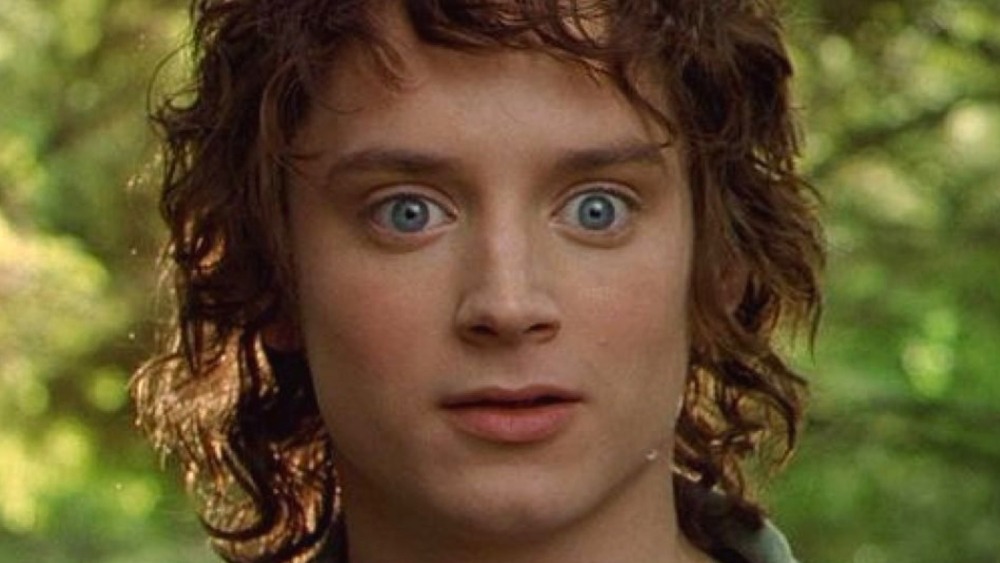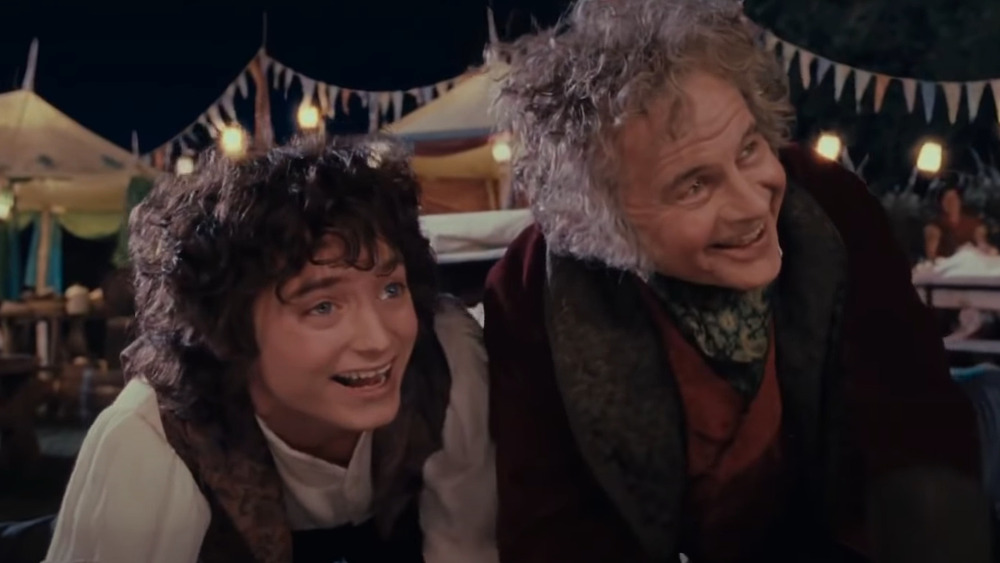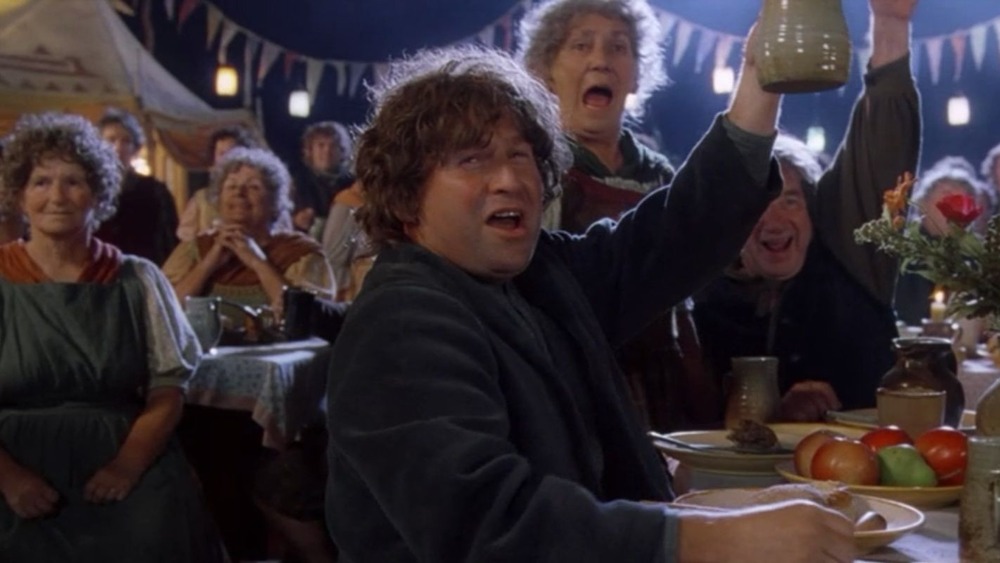Lord Of The Rings: How Bilbo And Frodo Are Actually Related
Bilbo and Frodo are major characters in J.R.R. Tolkien's mythos. The former headlines the adventure of The Hobbit and kicks of The Lord of the Rings with his 111th birthday party. From there, he remains on the periphery of the tale while Frodo steps into the spotlight as the Ring-bearer and one of the greatest unlikely heroes in all of Middle-earth's very long history.
Everyone knows that Bilbo and Frodo share the Baggins surname. However, one common misconception is how these two heroes' family history connects. The typical debate boils down to one of two options: Either they're cousins, or Bilbo is Frodo's uncle. We dug into the source material and discovered the answer to this puzzling riddle once and for all. Ladies and gentlemen, boys and girls, according to the lore of the venerable Mr. Tolkien himself, Frodo and Bilbo Baggins are cousins. Period. End of story.
Need more proof? On the first page of The Fellowship of the Ring, it clearly states that Bilbo "had no close friends, until some of his younger cousins began to grow up. The eldest of these, and Bilbo's favourite, was young Frodo Baggins."
A few pages later, the Gaffer (Sam Gamgee's dad) breaks down the relationship even further in a wonderfully convoluted manner, stating that Frodo's father, Drogo, "married poor Miss Primula Brandybuck. She was our Mr. Bilbo's first cousin on the mother's side (her mother being the youngest of the Old Took's daughters); and Mr. Drogo was his second cousin. So Mr. Frodo is his first and second cousin, once removed either way, as the saying is, if you follow me." There's even a visual breakdown of the family tree in the Appendix to The Return of the King, which clearly shows that the two are only distantly related cousins.
Why Bilbo and Frodo's relationship tends to be confusing
Like it or not, Frodo is not Bilbo's nephew. Nor is Bilbo Frodo's uncle. The two Hobbits are distant cousins. This is true in spite of the uncle-nephew narrative that has become lodged in the collective consciousness of many fans of The Lord of the Rings – especially the movies. The question that remains is, how on Earth have so many people come to misunderstand the relationship between the two characters? The answer is that there are actually quite a few ways that the relationship could easily be muddled.
The first factor is the age difference. Bilbo is 78 years older than Frodo. This automatically establishes a "kindly old uncle" vibe between the two. On top of that, The Fellowship of the Ring also states that "When Bilbo was ninety-nine he adopted Frodo as his heir." This complicates the relationship even further by giving it a father-son vibe, as well.
To top it all off, cinematic adaptations have a way of muddying up the waters by skipping over the little details and explanations like explaining family relationships. In Peter Jackson's trilogy of Lord of the Rings films, Bilbo clearly comes across as Frodo's uncle. In addition, the presence of a full-grown Merry and Pippin at Bilbo's 111th birthday party confuses the fact that, in the books, there's a 17-year gap between the party and Frodo leaving the shire at the age of 50. All of these factors add up to provide a convincing argument (on the surface, at least) that Bilbo and Frodo are uncle and nephew, respectively, even though it's clearly stated in the source material that they are cousins.
Hobbits and family history
All of this talk of genealogies, ancestry, and distant relations underlines an interesting point: Hobbits love their family history. This is likely why Bilbo would have kept tabs on his distant cousin, even though the connection was so tenuous. It also explains why he could send out 12 dozen elite invitations to his birthday party with the guests "selected from all the families to which Bilbo and Frodo were related..." as it also tells us in the book The Fellowship of the Ring. The plain fact of the matter is that Hobbits are obsessed with their family history and remain closely connected to their ever-branching family trees within their tight-knit communities in the Shire.
Once again, we turn to the book The Fellowship of the Ring to see Tolkien declare that "hobbits have a passion for family history" and are willing to sit and listen to genealogical breakdowns for hours on end. Tolkien's commitment to Hobbit breeding was so intense that the author even provides an utterly thorough breakdown of genealogies for the Bagginses, Tooks, and Brandybucks, as well as the prestigiously titled "Longfather-Tree of Master Samwise" at the end of The Return of the King.
A reflection of this dedication to family history also finds its way into the movies in one scene, in particular. At one point in the film version of The Fellowship of the Ring, while Frodo, Sam, and Merry lie low in the Prancing Pony at Bree, Pippin can be heard in the background saying, "Baggins? Sure I know a Baggins. He's over there. Frodo Baggins. He's my second cousin, once removed on his mother's side, and my fourth cousin twice removed on my father's side." The ridiculous string of family connections just drives home the point that, whether on paper or the silver screen, Hobbits can't get enough of their family history.


